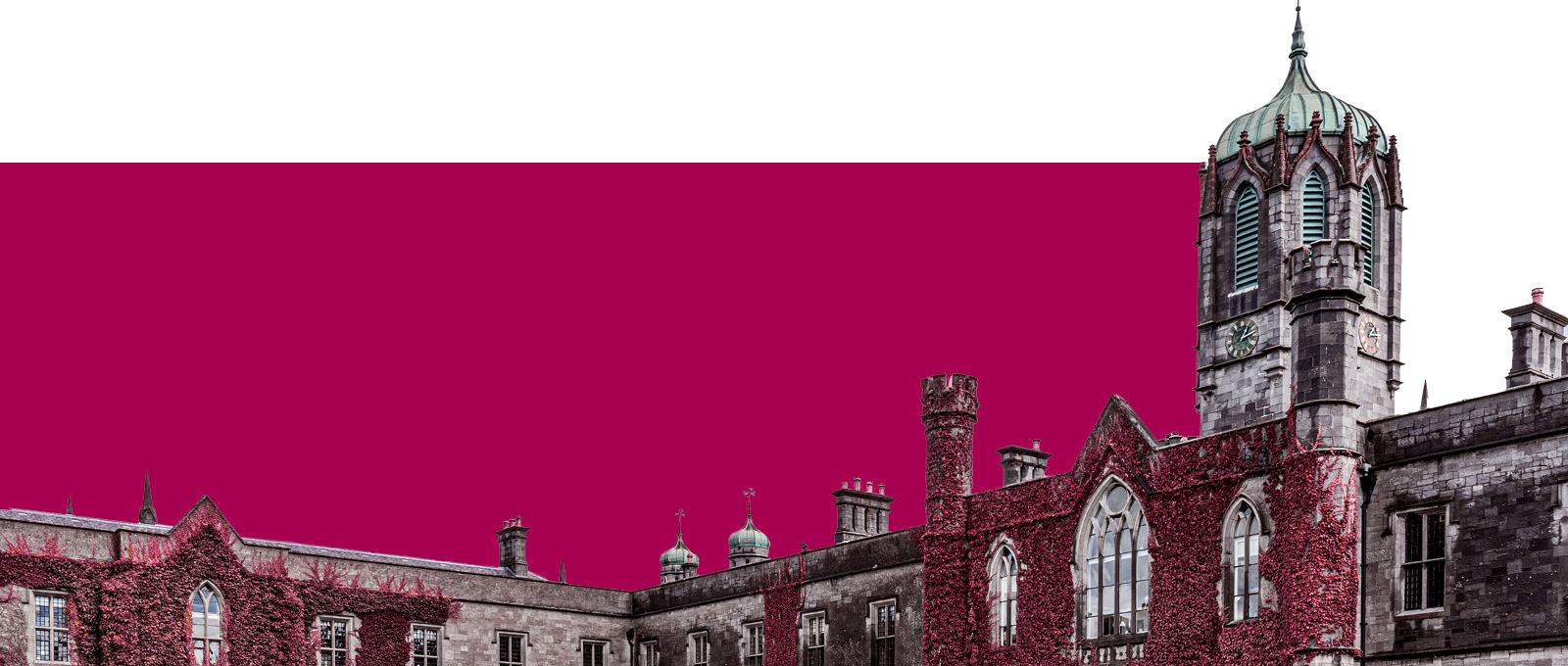Bachelor of Arts (English and Creative Writing)
This new course builds and expands on over a decade’s worth of experience in directing and fostering undergraduate talent specifically in Creative Writing at University of Galway. It provides a unique opportunity for students with an aptitude and passion for literary expression, and in keeping with the principle that ‘writers learn to write by writing’, the emphasis throughout is on practice-based learning and experience.
You will study and practice all the major genres of Creative Writing: Fiction, Nonfiction, Poetry, Playwriting, Screenwriting. Within these broader genres, you will be helped discover, experiment with and strengthen your own individual strands of interest.
During the course, your developing concentration on your own creative practice is paralleled by a focus on the practical imperatives and industry requirements in the many established and emerging writing-related fields. From the very start during your first year, a speaker from the writing professions visits the class each week for discussions, Q & A and informal conversation. This will help you begin to actively engage with the everyday routines and rhythms of writing-related professionals of all kinds.
With your expanding knowledge of what it takes to write at a high level, by the end of second year you will be ready to embark on a third year that provides for a 100% focus on your personal Creative Writing project(s). By the end of this specialism year, students on the course have developed advanced drafts of, for instance, novels of various kinds, collections of stories and/or flash fiction, poetry collections, plays, screenplays, essay collections, podcast scripts. You decide on your creative direction and project focus for the year, and then we will engage with your ideas and provide the teaching, mentorship and all-in guidance to help you fulfil your vision for your work.
Then, as you complete your studies in English and one other subject during your fourth and final year, you will build further on your third-year project(s) through modules that concentrate on further professionalisation, publication planning, social and public platforms and the various ways now of getting yourself and your writing out there.
Intakes
- Jan
- Sep
Application Processing Time in Days: 20
Minimum English Language Requirements
| English Level Description | IELTS (1.0 -9.0) | TOEFL IBT (0-120) | TOEFL CBT (0-300) | PTE (10-90) | |
|---|---|---|---|---|---|
| Expert | 9 | 120 | 297-300 | 86-90 | |
| Very Good | 8.5 | 115-119 | 280-293 | 83-86 | |
| Very Good | 8 | 110-114 | 270-280 | 79-83 | |
| Good | 7.5 | 102-109 | 253-267 | 73-79 | |
| Good | 7 | 94-101 | 240-253 | 65-73 | |
| Competent | 6.5 | 79-93 | 213-233 | 58-65 | |
| Competent | 6 | 60-78 | 170-210 | 50-58 | |
| Modest | 5.5 | 46-59 | 133-210 | 43-50 | |
| Modest | 5 | 35-45 | 107-133 | 36-43 | |
| Limited | 4 | 32-34 | 97-103 | 30-36 | |
| Extremely Limited | < 4 | < 31 | < 93 | < 30 |
Job Opportunity Potential
Career opportunities for Electrical & Electronic Engineers continue to be plentiful and varied. With the ongoing emphasis on energy and efficiency, there is an increasing requirement for graduates in electrical generation, transmission and distribution in companies like ESB and Eirgrid.
Semiconductor manufacturing and design provides another dynamic career path, with many of the world’s leading companies located in Ireland including Intel, Analog Devices, On Semiconductor, Texas Instruments and Microsemi.
Demands for expertise in electrical automation and control are also rising, particularly in the biomedical devices and pharmaceutical sectors, while the ongoing growth in demands for telecommunications provides yet another exciting career option in the development and testing of new devices and infrastructure.
According to the State of Ireland 2017 report by Engineers Ireland, there is currently a huge demand for engineers, and it is expected that job opportunities for Electrical and Electronic Engineers both nationally and internationally will continue to grow in the coming years.
This creates a wide range of job opportunities for our graduates and also leads to higher salaries. The most recent Engineers Ireland Salary Survey shows that Electrical and Electronic Engineers are amongst the highest paid in all of the engineering and technology disciplines. In 2014, the median salary for a Chartered Electrical/Electronic Engineer in Ireland was €73,000. This figure is growing year on year (Source)
Below are just some of the companies that University of Galway’s recent Electrical and Electronic Engineering graduates are working in:
Analog Devices
Bord Gáis
Ericsson
ESB
IBM
Intel
Medtronic
O2
Valeo
Admission Requirement / Eligibility Criteria
- Course Code: GY111
- Course Type: Full Time
- Course Level: Bachelors/UG Degree
- Duration: 04 Year
-
Total Tuition Fee:
74480 EUR
Annual Cost of Living: 12000 EUR
Application Fee: 35 EUR
Similar Programs
- Bachelor of Arts (Communications and Irish) at University of Galway
- Bachelor of Science in Geography and Geosystems at University of Galway
- Bachelor of Science (Social Science) at University of Galway
- Bachelor of Arts (Music) at University of Galway
- Bachelor of Arts (Journalism) at University of Galway
- Bachelor of Arts (History) at University of Galway

